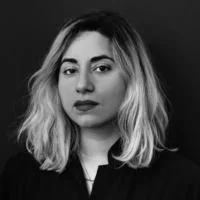Supporting a New Generation of Art Critics
Thursday, September 17, 6:00pm
Free and open to the public, with registration
Facilitated by Janet Heit and Seph Rodney
Guest Speakers: Mirene Arsanios, Terence Trouillot, Midori Yamamura
Recognizing that contemporary art criticism under the auspices of AICA-USA has, like other disciplines, become somewhat set in its ways with regard to received ambitions and methods, AICA-USA has the opportunity to learn from and become equal to this moment of general political disruption and recalibration. This workshop aims to identify and cultivate a younger generation of art critics, particularly with an eye toward identifying and nurturing members of groups that have been historically marginalized or ignored by the mainstream art market and press. This program initiates a professional dialogue between prospective mentors and mentees in order to locate, activate, and realize opportunities for mentorships, practical resources of support, and professional development.
Facilitators and speakers will discuss how mentorships can best hone a writer’s practice. What does a real mentorship look like and how can emerging writers find a mentor? Additionally, this program will consider creating benchmarks to measure progress, developing relationships with editors as well as alternative forms of reviewing, writing, and publishing and how to harness and express one’s politics within a landscape that often aims for the apolitical.
The event is free and open to the public. Attendance is limited, register here.
Please note that donation is not required to register, but we welcome your support.
Janet Heit came of age in the late-1970s, a time when H.W. Janson's misogynistic History of Art was hailed as the gold standard in art history classes (perhaps because so few women led art departments). It was also a time when artists outside the knee-bone-connected-to-the-thigh-bone mainstream had begun taking matters into their own hands: picketing museums, organizing their own shows in nontraditional venues, producing their own publications, amassing slide collections (Hatch-Billops), and more, in order to set things right.
As a critic and curator, Janet has focused on “setting things right” by documenting artists outside the tradition of The Great White Male. She was the recipient of a National Endowment for the Arts Fellowship in Art Criticism and had published and spoken widely, prior to a health crisis that forced her to step back for over a decade. She has since returned to her practice, most recently as curator of Spinoza: Marrano of Reason, at the Amstelkerk (Amsterdam, 2019).
Seph Rodney, PhD, is a senior editor and writer at Hyperallergic. He has also written for The New York Times, CNN, NBC Universal, and American Craft Magazine. He can be heard weekly on the podcast “The American Age”. His book, The Personalization of the Museum Visit, was published by Routledge in May of 2019. In 2020 he won the Rabkin Arts Journalism Prize.
Mirene Arsanios is the author of the short story collection, The City Outside the Sentence (Ashkal Alwan, 2015). She has contributed essays and short stories to e-flux journal, Vida, The Brooklyn Rail, LitHub, and Guernica, among others. Arsanios co-founded the collective 98weeks Research Project in Beirut and is the founding editor of Makhzin, a bilingual English/Arabic magazine for innovative writing. Her next book, The Autobiography of a Language, is forthcoming with Futurepoem (2021).
Terence Trouillot is a writer and editor based in New York City. He is a contributing editor at BOMB Magazine and has written about contemporary art and visual culture for magazines including BOMB, Momus, The Brooklyn Rail, The Village Voice, Arts.Black, Artnet News, Art in America, Artforum, art-agenda, and Eye on Design, among others. In 2019, he was elected to the board of AICA-USA, the International Association of Art Critics. He is currently an associate editor at frieze magazine, and prior to that was an associate editor at Artnet News, and in 2015 was BOMB magazine’s Oral History Fellow, where he acted as the primary editor of BOMB's Oral History Project—a unique series of one-on-one interviews with New York-based African American artists, curators, and cultural figures. In 2014, he received an MFA in Art Writing and Criticism from the School of Visual Arts, where he wrote his thesis on social practice and the Austrian art collective WochenKlausur, and he received his BA from Wesleyan University in 2007.
Fascinated by non-Western contemporary art, Midori Yamamura came to New York from Japan to become a specialist in post-WWII Asian art. She was fortunate to meet her mentor, Anna C. Chave, who agreed to oversee Yamamura’s MA thesis on postcolonial Filipino art and Ph.D. dissertation on Yayoi Kusama, which became her first book. Prof. Chave’s attitude toward feminism profoundly influenced Yamamura’s scholarship. At her transition from a student to a professional writer, she was helped by other feminists including Frances Morris, Joan Marter, Peggy Barlow, Ute Tellini, and Judith Stein. Currently, Yamamura is writing her second book, Japanese Contemporary Art Since 1989: Emergence of the Local in the Age of Globalization and co-editing a volume, Visual Representation and the Cold War: Art in East and Southeast Asian and Postcolonial Struggles (Routledge: 2021). She teaches art history at Kingsborough Community College, CUNY.






